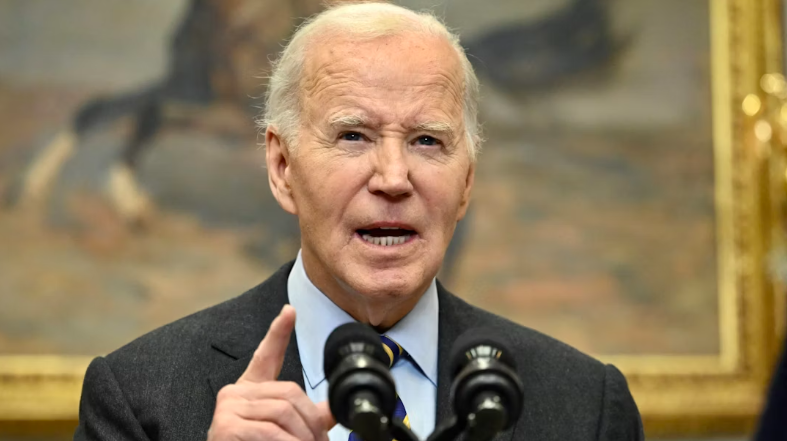FBI Agents Association Blasts Biden For Commuting Sentence Of Cop Killer
In a highly controversial move during his final hours in office, former President Joe Biden commuted the life sentence of Leonard Peltier, a Native American activist convicted in 1977 for the murders of FBI Special Agents Jack Coler and Ronald Williams during a standoff at South Dakota’s Pine Ridge Indian Reservation. The decision has sparked outrage from law enforcement organizations, families of the slain agents, and critics who see the commutation as a dangerous precedent undermining justice.
FBI Agents Association Statement on Commutation of Leonard Peltier:
“The FBI Agents Association (FBIAA) is outraged by then-President Biden’s decision to commute the sentence of Leonard Peltier, a convicted cop killer responsible for the brutal murders of FBI Special Agents…
— FBI Agents Association (@FBIAgentsAssoc) January 20, 2025
A Divisive Legacy
Peltier, now 80, has spent nearly five decades in prison and has long been the focus of a polarizing debate. Activists and human rights organizations have argued for his release, claiming his conviction was influenced by racial prejudice, procedural misconduct, and a lack of direct evidence linking him to the murders. His supporters view him as a symbol of the systemic injustices faced by Indigenous communities.
However, the FBI Agents Association (FBIAA) has vehemently opposed clemency for Peltier. In a sharply worded statement, FBIAA President Natalie Bara described the commutation as a “cowardly act that undermines the rule of law.” She added, “Leonard Peltier has never expressed remorse for his actions, and this decision is a cruel betrayal to the families and colleagues of these fallen agents. It is a slap in the face of law enforcement.”
Law Enforcement Reacts
Former FBI Director Christopher Wray also expressed his opposition to the commutation in a letter sent to President Biden on January 10. Wray labeled Peltier a “remorseless killer” and called clemency “an affront to the rule of law and justice.” He emphasized that granting Peltier leniency disregards the sacrifices of FBI agents who risk their lives to uphold justice.
“These agents died in the line of duty, protecting their nation. The idea that their killer should be set free is unconscionable,” Wray wrote.
A Political Flashpoint
The decision has drawn criticism from conservative lawmakers and law enforcement advocates, who argue that it sets a dangerous precedent for political interference in the justice system. Many noted that Biden’s commutation disregards decades of legal reviews and appeals that upheld Peltier’s conviction.
Republican Senator Josh Hawley called the move “an outrageous betrayal of law enforcement,” adding, “This decision shows a complete disregard for the lives lost in service to this country.”
Supporters Applaud the Move
On the other side, Peltier’s supporters have hailed the commutation as long overdue. Amnesty International and other human rights organizations have claimed that Peltier’s trial was marred by misconduct, including coerced testimony and withheld evidence. Peltier’s advanced age and declining health have further fueled calls for his release on humanitarian grounds.
“Leonard Peltier’s continued incarceration represented a grave injustice,” said a spokesperson for the American Civil Liberties Union. “President Biden’s decision to commute his sentence is a necessary correction to a long-standing wrong.”
Families of the Fallen React
The families of Special Agents Jack Coler and Ronald Williams expressed devastation over Biden’s decision, emphasizing that justice has not been served. “We have spent decades honoring the memory of these men who gave their lives in service to this country,” said a family representative. “This commutation is a painful reminder that their sacrifices are being disregarded.”
A Divisive Legacy
Peltier’s commutation adds a controversial chapter to Biden’s presidency, with supporters applauding his action as a gesture of compassion and critics denouncing it as a blow to justice and law enforcement morale. The decision is likely to remain a flashpoint in discussions about the balance between justice, fairness, and the influence of political power in criminal cases.
As President Donald Trump takes office, this decision will undoubtedly serve as a stark contrast to his administration’s tough-on-crime policies, setting the stage for further polarization on issues of justice and clemency in the United States.

